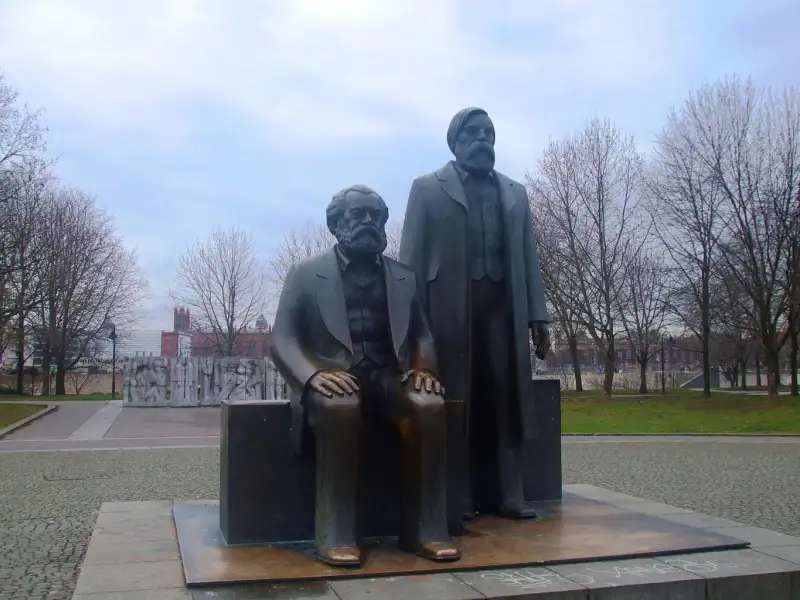Table of Contents
- Origins of Historical Materialism
- Core Principles of Historical Materialism
- Implications of Historical Materialism
- Criticisms and Debates
- Conclusion
Historical materialism is a theoretical framework for understanding society, history, and economics, developed by Karl Marx and Friedrich Engels. This perspective forms the backbone of Marxist theory and has had a profound impact on sociological thought and practice. It offers a lens through which we can analyze the development of human societies through the relationships between material conditions and social structures. This essay will provide a detailed explanation of historical materialism, its origins, its key principles, and its implications for understanding social change.
Origins of Historical Materialism
Karl Marx and Friedrich Engels
The concept of historical materialism was primarily developed by Karl Marx and Friedrich Engels in the 19th century. Marx was a German philosopher, economist, and revolutionary socialist, while Engels was a social scientist, author, political theorist, and close collaborator of Marx. Together, they co-authored several works, most notably “The Communist Manifesto” and “Das Kapital,” which laid the foundations for Marxist theory.
Intellectual Context
Historical materialism emerged as a response to the dominant philosophical and economic theories of the time, particularly those of Hegelian idealism and classical political economy. Hegel’s philosophy emphasized the development of human consciousness and ideas as the driving force of history. In contrast, Marx and Engels argued that it is not consciousness that determines life, but life that determines consciousness. This materialist approach posited that the material conditions of society—its economic base—shape its social and political structures, ideologies, and development.
Core Principles of Historical Materialism
The Base and Superstructure Model
One of the central tenets of historical materialism is the base and superstructure model. According to this model, society is divided into two interrelated components:
- The Economic Base: This consists of the forces and relations of production, including the means of production (e.g., land, factories, tools) and the relations of production (e.g., class relations, labor relations). The economic base fundamentally shapes the material conditions of society.
- The Superstructure: This encompasses the cultural, ideological, legal, political, and social institutions and practices that arise from and serve to maintain the economic base. The superstructure includes the state, education, religion, and family structures, which are influenced by the underlying economic base.
Marx and Engels argued that changes in the economic base lead to corresponding changes in the superstructure. Thus, to understand societal change, one must examine the material conditions and economic structures.
Historical Stages and Modes of Production
Historical materialism posits that human history progresses through distinct stages, each characterized by a particular mode of production. Marx identified several key stages in the development of human societies:
- Primitive Communism: Early human societies were based on communal ownership and cooperative labor. There was no private property, and social relations were egalitarian.
- Slave Society: The development of agriculture and surplus production led to the emergence of private property and class divisions. Slavery became the dominant mode of production, with a class of slave owners exploiting the labor of slaves.
- Feudalism: The decline of slavery and the rise of feudalism saw the establishment of a system based on the ownership of land by a hereditary aristocracy. Serfs worked the land and provided labor and produce to the feudal lords in exchange for protection and a place to live.
- Capitalism: The transition from feudalism to capitalism was marked by the rise of a new class, the bourgeoisie, who owned the means of production. The proletariat, or working class, sold their labor power in exchange for wages. Capitalism is characterized by the pursuit of profit, competition, and the commodification of labor.
- Socialism: Marx envisioned socialism as a transitional stage between capitalism and communism. In a socialist society, the means of production are collectively owned, and the distribution of goods and services is based on need rather than profit.
- Communism: The final stage in Marx’s historical progression is a classless, stateless society where the means of production are communally owned, and social relations are based on cooperation and equality. In communism, the exploitation of labor is abolished, and individuals contribute according to their abilities and receive according to their needs.
Class Struggle
Get the full article AD FREE. Join now for full access to all premium articles.
View Plans & Subscribe Already a member? Log in.





